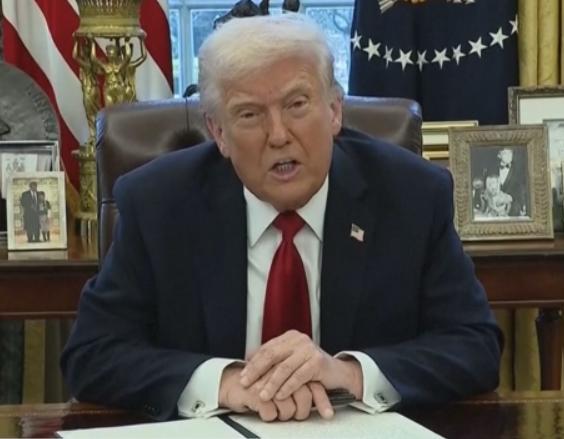
Recently, US President Trump announced on social media that on May 12 local time, he signed an executive order at the White House, stipulating that the United States will purchase medicines at the world's lowest prices. This executive order is mainly aimed at the problem of excessively high drug prices that the United States has long faced. As the world's largest drug consumption market, the United States has long had high drug prices, imposing a heavy economic burden on the public, especially patients with chronic diseases. Trump said that after the new policy is implemented, the prices of prescription drugs and medicines in the United States will basically drop by 30% to 80%. The United States will purchase medicines at the prices of the countries with the lowest listed prices in the world. Meanwhile, the prices of medicines in other countries around the world will rise to achieve price balance. Trump's remarks that he would reduce drug prices in the United States by 80% have indeed caused sharp fluctuations in the global medical environment. However, the actual implementation of his policy is questionable, and it may have complex and multi-faceted impacts on the global business environment. The first is the impact on the global pharmaceutical market and pharmaceutical companies. The United States is the world's largest pharmaceutical market, with a market size of 711 billion US dollars in 2023, accounting for more than 40% of the global total. If drug prices drop by 80%, both domestic and multinational pharmaceutical companies in the United States will face a sharp decline in revenue and a significant compression of their profit margins. For instance, American pharmaceutical companies such as Johnson & Johnson and Merck & Co., as well as multinational pharmaceutical companies like Novo Nordisk of Denmark and Roche of Switzerland, have a relatively high sales share in the US market. Price cuts will directly affect their global performance. The decline in drug prices will lead to a compression of the industry's profit margins. Pharmaceutical companies may integrate resources through mergers and acquisitions, reorganizations and other means to enhance market concentration. Small pharmaceutical companies may be eliminated due to their inability to withstand the pressure of price cuts, and the industry landscape is facing a reshaping. In addition, the pricing of innovative drugs in the United States is much higher than that in other countries. After price cuts, pharmaceutical companies may find it difficult to maintain their high research and development costs and operating expenses. Drug research and development requires huge capital investment. After a significant drop in drug prices, the profitability of pharmaceutical companies declines, which may lead to a reduction in investment in research and development, thereby affecting the progress and innovation level of new drug research and development.
The second is the impact on the upstream and downstream of the industrial chain. The decline in drug prices in the United States may lead pharmaceutical companies to cut costs and become more sensitive to the purchase prices of active pharmaceutical ingredients. Domestic API enterprises may face downward pressure on prices, but those with cost and quality advantages may expand their market share. If the overall prosperity of the US biotechnology industry is affected, even contract research organizations (CROs) and others may be implicated. Domestic CRO enterprises may encounter a reduction in orders and a slowdown in business growth. However, this will also prompt them to enhance their own capacity building, expand diversified businesses, and seek new business growth points. Drug research and development requires a huge amount of capital investment and carries relatively high risks. After a significant drop in drug prices, the profitability of pharmaceutical companies has declined, which may lead to a reduction in investment in research and development, thereby affecting the progress and innovation level of new drug research and development. This is not conducive to the long-term development of the pharmaceutical industry and may also lead to the obstruction of the research and development of therapeutic drugs for some rare and difficult diseases.
Thirdly, regarding the impact on international trade and policies, Trump's executive orders are facing legal challenges, and the implementation effect of the policies is questionable. Previously, similar policies were put on hold due to procedural issues. Whether this policy can be implemented remains to be seen. If the policy triggers an adjustment in the global drug price system, it may intensify international trade frictions. Other countries may raise objections to the drug price policy of the United States or take countermeasures.
To sum up, although the reduction in drug prices can alleviate the economic burden on American consumers and enhance drug accessibility in the short term, in the long run, it is necessary to be vigilant against potential risks such as the shortage of unpopular drugs and the frustration of enterprises' innovation drive, which may affect the sustainable development of business.

Driven by the Trump administration's push to relax financial regulations and the recovery of investment banking business, the market value of the six major banks in the United States has cumulatively increased by approximately 600 billion US dollars by 2025.
Driven by the Trump administration's push to relax financia…
On Christmas evening, U.S. President Trump posted on social…
According to multiple foreign media reports, the recent fin…
The middle class, once regarded as the cornerstone of Ameri…
On December 19th local time, the US military launched a lar…
The Boxing Day sunshine should have cast a false glow of pr…